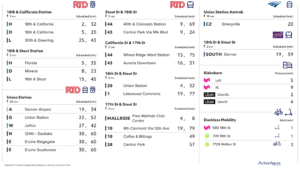
If you weren’t with us last year then you probably won’t remember when we shared that 17 percent of Americans commute over 45 minutes to work, totaling in nearly 16 days a year being spent in a car. This could be why we’re finding that more professionals are leaving jobs due to grueling commutes.
The impacts of commuting
Commutes can have a major impact on morale. A study done by Robert Half has found that 23 percent of workers have left their jobs due to having an awful commute with Chicago, San Francisco, Miami, and New York holding the highest rates of employee turnover. What’s the deal? Well, some have actually reported that their commutes have gotten better over the past 5 years, but the majority have either had no change or are experiencing worse commutes.

The age of alternative commutes
Now here’s an interesting connection: Robert Half found that the largest age group to leave due to a bad commute falls within those who are anywhere from 18 – 24 years old. If you recall, we shared another interesting report that millennials aren’t buying cars like older generations used to — opting for a life dependent on mass transit, carpooling, or walking. So could the main age group be the key to creating a better transit system in America? It’s possible that the youngest of the professional world are more likely to leave a job due to a bad commute because they’re moving away from a car-centered society.
But, an alarming statistic (last one, I promise) shows that 60 percent of employees report their companies not taking any action to better their commutes. This could be another contributor as to why younger professionals are more likely to leave a job because of a bad commute. Finding a job that values their employees is important to millennials (who make up the majority of our working world currently) — commuting over an hour to work everyday can be a huge factor in determining loyalty between employer and employee.
How employers can help
So, where can employers step in? Flexible work hours are a great way to ease up on commutes while providing employees with a mental break from the office. Providing commuter benefits that make sense for your employees — there are a lot options out there like paying workers to not drive to work! Another option is allowing people to go completely remote, which is dependent based on what line of work you’re in, but is definitely something to consider if it’s feasible.

Understanding the economic and mental toll that traffic can have on people is important to keeping a competitive edge in our current climate. If commutes are getting worse enough to push people to quit, then it might be time to start acting on these benefits.





